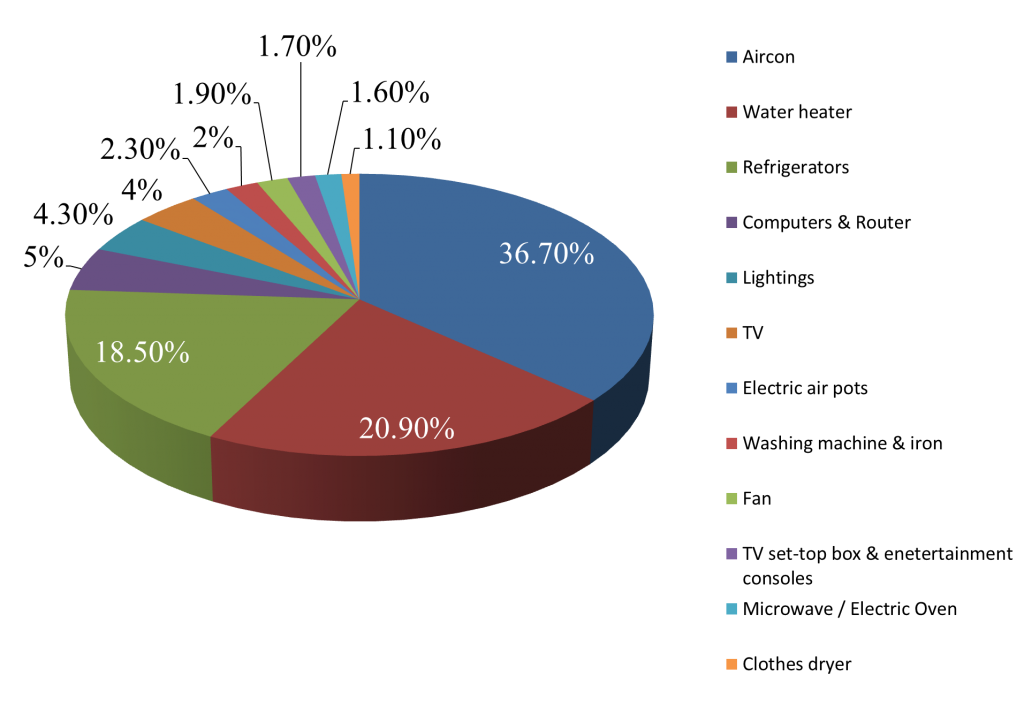Energy consumption of Primary and Secondary Schools in Singapore
Did you know that energy consumption in schools can account for up to 19% of their total operating costs? Further, due to the higher cost of natural gas, electricity tariffs have gone up by 6.3% in the first quarter of 2018 (http://www.straitstimes.com/singapore/electricity-tariffs-to-increase-by-63-in-first-quarter-of-2018). That is a significant increase!

Figure 1. Electricity consumption across all households in Singapore (National Environmental Agency, 2013)
As such, here are 5 main energy hacks that schools in particular can apply right away for a greener new year!
- Unplug the unused:
All that is required is to ensure that unused electronic items such as your desktop, table lamp & office lighting are left unplugged. Although unused, they continue to sap out a considerable amount of energy! (http://www.renewableenergyworld.com/ugc/articles/2015/04/five-energy-efficient-life-hacks.html)
- Air arrangements:
In tropical climates such as Singapore, air conditioning makes up for one of the largest energy spending! However most air conditioners (A/C) are probably clogged up. And clogged up filters are very inefficient. Reason being that the A/C will have to work doubly hard to produce the same amount of cooling. Thus replacing a well-used filter will result in a cheaper, more efficient cooler! (http://www.renewableenergyworld.com/ugc/articles/2015/04/five–efficient-life-hacks.html) http://www.southerngoodman.com/hvac-filters/clean-vs-dirty-air-filters
http://www.southerngoodman.com/hvac-filters/clean-vs-dirty-air-filters
- Use a DCV (Demand-controlled ventilations) instead of a HVAC (Heating, ventilation, and air conditioning):
When it comes to air-conditioning systems use a DCV system instead of a HVAC. Now you won’t have to make continuous temperature adjustments anymore as DCVs automatically adjusts the cooling output. It does so by measuring CO2 levels (a direct indicator of the number of occupants) in the room. (http://www.dexmatech.com/10-energy-hacks-office-save-money-winter/)
- A great way to reduce electricity consumption in schools is to cut down on the usage of chillers:
This is as achieved by NYP (Nanyang Polytechnic) as it managed to shave off 7% of its power consumption savings during the period of shutting down one of its 7 chillers for 30 minutes.
Apart from directly cutting down on power consumption, schools can also transfer energy consumption to off-peak periods.
- Shift electrical loads to off-peak hours:
Via TodayOnline, the government is currently exploring alternatives to switch energy usage to off-peak periods to achieve a spread out energy curve. It is possible to do so without affecting operations without affecting operations. (http://www.todayonline.com/singapore/schools-govt-agencies-find-ways-cut-electricity-use-during-peak-hours)
The above steps in reducing energy consumption are easily executable with little effort. Perfect for the busy work life in Singapore.



